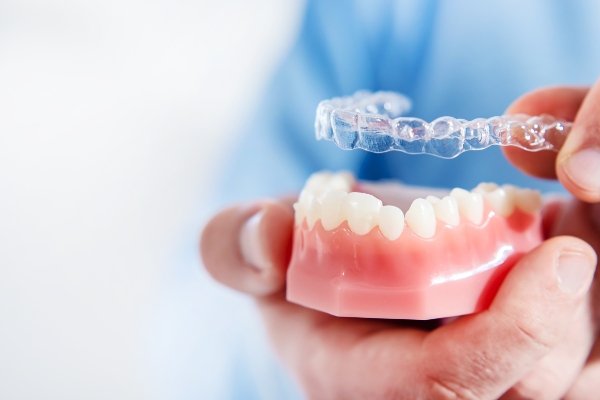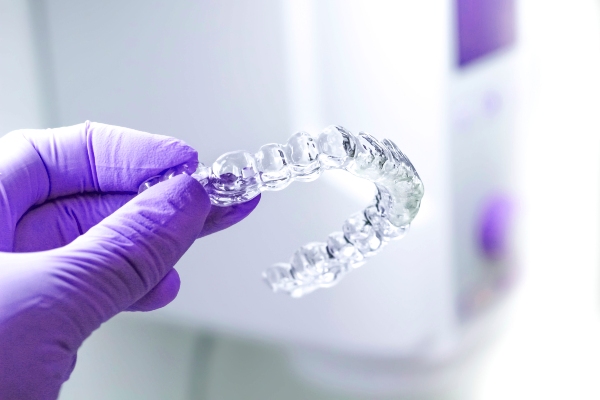What to Expect After Your Child’s Pediatric Root Canal

A pediatric root canal can restore your child’s infected tooth. The pediatric dentist will assess the child’s painful tooth. Recommending this procedure can prevent the infection from spreading. Here are the details on what to expect after your child’s scheduled pediatric root canal.
Preparing the child
Preparing the child well can cause the young patient to relax and cooperate. The pediatric dentist will then have an easier time performing the procedure. Studies show that anxiety comes from an unknown future. Discuss the procedure with the child. Doing so will help the child understand what will happen.
Explain the importance of a pediatric root canal. Tell the child how the procedure will happen from beginning to end. Use the most basic language and avoid big words that sound scary. Try to answer the child’s questions. The pediatric dentist can answer the ones the parent cannot.
Show educational pictures or videos about the pediatric root canal. Explain each step as the child sees it. This experience can remove fearful thoughts about the treatment day. Stress the importance of cooperating with the dentist. Keeping the mouth open and staying still are important tasks to maintain. Parents being there throughout the appointment can help encourage the child.
Factors that cause discomfort
This procedure is invasive. It is normal for the child to experience mild swelling, pain, and tenderness. Many factors can cause these issues. The following are some of the main ones:
- In some cases, the dental instrument for cleaning out the tooth’s root canal damages the surrounding soft tissues. The damage can then cause discomfort.
- A temporary filling higher than the neighboring natural tooth can cause a harder bite on that area. This matter causes sensitivity and soreness in the treated tooth. The discomfort should fade in a few days.
- Tiny nerves in the surrounding tissues and ligaments remain swollen after the pediatric root canal. The nerve endings signal pain and cause the areas to be sore.
Pain management
Technological advances in dentistry make a pediatric root canal more comfortable for kids. The pediatric dentist will numb the area and clean the damaged or infected pulp. The process will remove the cause of the discomfort. Pain can still occur once the numbness fades. The dentist will recommend over-the-counter medications to manage the discomfort. Using cold compresses can relieve swelling and pain as well.
Proper aftercare
The pediatric dentist will also provide aftercare instructions after the pediatric root canal. Aside from good pain management, the parent or guardian must also care for the child’s mouth. The most important way to do so is to continue to promote good oral hygiene. Proper flossing and brushing every day will keep the treated area clean and infection-free.
Use a warm saltwater solution as a mouth rinse. This will help counter possible infections. Remind the child not to use the treated tooth. Letting the pediatric dentist restore it fully first will give the tooth enough protection and support. The child can then perform dental functions without worrying about pain.
Proper nutrition
Keep an eye on the child’s nutritional intake and daily diet. It is essential for the child to eat nutritious foods for proper healing. Avoiding foods that can cause infections and irritations is also necessary. Sticky and hard foods can dislodge the temporary crown or filling. Keeping the child on a soft diet can help the tooth heal well. Scrambled eggs, soup, or mashed potatoes are good examples of soft foods that kids love.
Limit the child’s intake of acidic and sugary drinks. These beverages can worsen dental sensitivity by eroding the enamel. Encourage the child to drink water. Keep the water’s temperature just right. Hot or cold drinks can trigger sensitivity.
Follow-up visits
Bringing the child in for follow-up appointments is vital for the child’s oral wellness after the pediatric root canal. These visits will ensure that the treated tooth is healing well without complications. The pediatric dentist will check the child’s treated tooth for signs of damage or infection. It is also a chance for the dentist to keep an eye on the bone regeneration around the tooth.
Follow-up appointments also let the parent air out concerns about the child’s healing. Some patients may need more of these visits than others. Kids with health issues may need extra attention. Working with their physicians may be necessary to ensure proper recovery.
A pediatric root canal may be necessary to achieve a healthy smile
Dental decay or damage can cause problems in your child’s oral development. Early tooth loss and oral pain are preventable with a pediatric root canal. This procedure may be invasive, but it can give your child a healthier mouth. Working with your pediatric dentist can keep your child’s mouth pain-free for a long time.
Request an appointment here: https://www.orthodonticprecision.com or call Precision Orthodontics & Pediatric Dentistry at (703) 391-8800 for an appointment in our Reston office.
Check out what others are saying about our dental services on Yelp: Root Canal Treatment in Reston, VA.
Recent Posts
It may take a few days to become accustomed to Invisalign®, as with any orthodontic device. Continue reading to find out more about how Invisalign may affect speech. Invisalign trays fully cover the teeth, giving them a somewhat thicker appearance and feel. Some individuals may notice a little, transient alteration in their speech for the…
While many people want to undergo Invisalign® treatment, they must determine if they are good candidates for the teeth straightening option. Nevertheless, this sleek system is a popular alternative to traditional braces for teens and adults. This article reviews some of the indications that Invisalign may work for you.Invisalign is a system of transparent aligner…
Invisalign® allows people to straighten their teeth without needing the metal brackets and wires with conventional braces. Invisalign trays are transparent and almost undetectable on the teeth. However, what exactly are those trays composed of? Continue reading to discover more about how the trays' material and design move your teeth around.Invisalign clear aligners, often known…
Picking between braces and Invisalign isn't just about straightening teeth - it's about how treatment fits into your actual life. Teens worry about school photos and sports. Adults think about work meetings and social events. Both options work well, but they work differently for different people.Today's dental technology gives you real choices, and understanding what…


